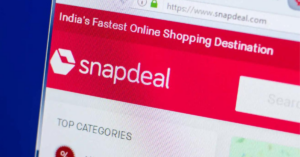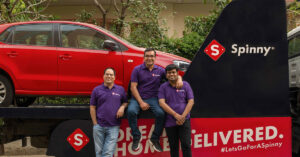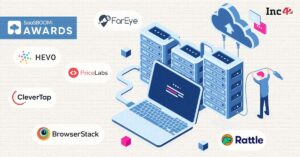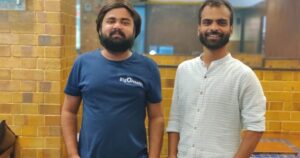weDevs CEO and co-founder Md Nizam Uddin walks us through his early life, how his childhood and upbringing continue to shape his life and work, his path to entrepreneurship, gives us a peek behind the scenes of his company, and discusses his philosophy on doing good work, the state of weDevs today and its ambition going forward, how weDevs operates, the art of growing a software company, talks about the challenges of being a founder, building a positive culture, dealing with challenges and stress, and reflects on relying on Allah and the concept of perpetual good deeds in Islam, making a positive difference, and learning to stay productive while living a good life and so much more.
Future Startup: Could you please tell us about your background i.e. your childhood, education, career, and your path to entrepreneurship?
Nizam Uddin: I was born in Jagannathpur village of Chatmohar thana in Pabna district. Now there is a touch of modernity but in my childhood, this place was undeveloped and unprivileged where electricity came in 2003. My family was well-off though, Alhamdulillah. My Grandpa was a reputed person and remains on till these days in that entire village. He was a teacher, a scholar, and hugely popular.
My father was born after my eight aunts – he was so pampered by all of them that he could not study much. Although he couldn’t study much, he had a strong desire to give me the best education. The best teachers in the area would come and teach me at home. Also, all the teachers in our primary school who came from outside stayed in our house. As a child, I saw that at least one or two teachers always stayed in our house and they used to teach me academic lessons. So, although I am from an undeveloped village, I had access to good education, Alhamdulillah. Some of my teachers in those early days have changed my life in more than one way. One teacher, named Abdur Rahim, who taught me from class one to five, encouraged me not to memorize math rather understand the underlying concepts, which I think has positively affected my life to a great extent.
I didn’t have any dreams of my own till class five. My parents never said you have to be a doctor or an engineer. My father just told me to be a good person and achieve good academic results. After getting a scholarship in class five, largely owing to the strong desire of my father, I got into Pabna Zilla School and got a seat in the school hostel. The turning point of my life commenced here, Alhamdulillah.
At that time the communication system from our village to Pabna was broken. It was tough to travel. For example, first, we had to walk 20/25 minutes, then get on a boat to come to a place in 40/45 minutes, and from there we had to come to Pabna in another 40/50 minutes by tempo. Now, Alhamdulillah, you can go there by car. As I was saying, after getting admitted into Pabna Zilla School, my life took a turn. I started to see my dreams unfold and was gradually developing a conviction that I could make them come true.
Since I had developed the habit of reading from my childhood, I didn’t miss the golden opportunity to start reading at the Annada Govinda Public Library when I came to Pabna. At school, I was in the morning shift. After class, I would go to the library after prayers and lunch. I read books on many subjects. There I came to read the first science magazine and came to know about NASA for the first time. As I read these magazines, I began to dream that one day I would become a scientist. I used to do small science experiments on my own.
I first learned about the internet reading a magazine. In 2001, I learned how to use the internet in a cyber cafe. I was in class seven at the time and I spent 300 taka on that first visit to the cyber cafe. From then on, I used to use the internet for 20 taka an hour from the money my father used to spend on me and I used to go to cybercafes and sit on NASA’s website. Needless to say, many people usually come from the countryside to the city and couldn’t keep up. Alhamdulillah, this was not a problem for me. Until class ten, my position in the class was within one digit. The habit of reading hard and understanding other subjects including math helped me a lot.
After finishing SSC, I moved to Dhaka and got into Government Science College. Immediately after admission, I came across a creative brochure of Udvash. I was immediately attracted and eventually took admission to Udvash. The class of Sohag Bhaia, the founder of Udvash, moved me greatly. I could not have imagined that science could be explained in such a beautiful way. My process of thinking was seriously influenced by Sohag Bhai. Not only his excellent pedagogy but also motivational short speeches in class brought a huge change in my life. I also learned from him how to love my motherland unconditionally as all owe it to a great deal. From then till now I am a super fan of Sohag Bhai and he has been my mentor throughout all these years. I still go to his place for intellectual discussion and inspiration.
The desire to become an engineer instead of a scientist became stronger during this period as I was attending classes in Udvash. Gradually, I developed a strong desire to study computer science at BUET. But after coming to Dhaka, I could not cope with the new weather. At first, it was jaundice, then chickenpox, and all in all I was sick for a long time. Despite these physical challenges, my preparation was not bad but during the final exam, I got seriously ill and could not attend any practical exam. Thus the result came out very bad. BUET, far from it, I was not even eligible to sit for the admission exam in other engineering universities. With this result, I went after thinking about admission to a regular public university. Finally, by the grace of Allah Ta’ala, I got into the Department of Computer Science and Engineering of Rajshahi University.
Upon admission, I set an ambitious target to compete as a world finalist in ICPC. Atiq, Asik, and I teamed up together and started solving the UVA problems. We participated in several contests and started doing fairly well. There was a clash between the students of different political groups in the university and our academic sessions got tangled up.
When we were in our second year, Tareq asked me to participate in the soft expo in Dhaka. I agreed without a second thought and we participated in BASIS Soft Expo 2010 with the project of Kausar Bhai, a senior in our department. The project was a Braille board with which the blind could read from the computer. We got the Best IT Innovation Award. Taking awards from the minister, getting featured in good newspapers inspired my young mind tremendously. I was at the expo for 5 days which turned the corner of my life. I attended many seminars, talked to a lot of people, and came to know a lot of initiatives, and got to know a lot of details about entrepreneurship.
From one of the seminars, I learned that entrepreneurship is all about solving the problems of the society which will have a huge positive impact on the family, society, and the country. I kept thinking a lot about these things and a feeling came across my mind that this is what I want to do. This also coincided with a lesson I received from my family, which is to devote as much to Sadaqa Jariya (Islamic way of helping people) as possible in life, with which I find a broad resemblance that being an entrepreneur would do the most.
From then on, I started looking for problems which are possible for me to solve with the technology and which will be useful to people. Many thanks to Tareq for taking me to the soft expo. If it was not for Tareq’s encouragement to attend the expo, my life’s trajectory could have been very different.
The first problem I found was the broken education system. I thought to myself that my friends who are studying computer science are making computers into cassette players – there is truly a lot more good work to be done besides songs, dramas, and movies. I don’t even think about it. To solve this problem, I tried to collect 500 gigabytes of video tutorials with my friend Tareq and spread them all over Bangladesh, along with building a physical training center, online training center, a forum, and a marketplace like Upwork. It was inaugurated in July 2011 by the then state minister Yafes Usman and Munir Hasan Sir. Earlier, however, I set up a news portal with my friend BM Sharif to help university students get news related to them, which I later shut down. Later in 2012, we started weDevs. So that’s how I came to be an entrepreneur.
Future Startup: How has your childhood and upbringing shaped your work and worldview?
Nizam Uddin: As I mentioned earlier, when I was young I did not have any particular dream of my own. That changed when I enrolled in Pabna Zilla School. The Pabna Zilla School changed my outlook towards life and my first dream was to be a scientist. At college, I wanted to be an engineer. Finally, after attending the soft expo I decided to be an entrepreneur.
Growing up, my family has been an important influence in shaping my worldview. My parents were not highly educated but Alhamdulillah, they did not lack religious knowledge and wisdom. They paid huge attention to shaping my morals. They emphasized and taught me at a young age that I must surrender my wish to Allah and do things that Allah approves of. They taught me to help others or at least do no harm to others. And follow and practice the Sunnah of our Prophet Muhammad (peace be upon him). Religious teachings are still given the highest priority in my family.
While my parents tried to instill certain values and teaching in me, my father has also given me a lot of freedom. He never forced anything upon me. When needed, he taught me instead of forcing me. Nudged me towards doing the right things. But he never pushed me. It has helped me to grow up independent and learn to think for myself.
Similarly, my experience of working with different people in different environments as I was away from family since class six, my father’s efforts to have me study in the best schools, and my freedom to make my own decisions have played an important role in becoming who I’m today.
Future Startup: When and how did you get started with weDevs? What motivated you to start weDevs?
Nizam Uddin: weDevs is not my first startup. I first became interested in entrepreneurship in 2010. Afterward, I tried to identify problems that could be solved using technology. First, I started working on a news portal with my friend BM Sharif aimed at campus news and students. Later in 2011, I started working with my friend, Tareq, on education. We provided physical training to 60/70 people, provided free video tutorials to a lot of people, along with online training and a freelancing marketplace. But we had to shut it down and the experience was not particularly good.
In 2012, I and Tareq started weDevs in a rented house in Rajshahi. Tareq has already been working with WordPress and created a few popular plugins. His WP User Frontend plugin was very popular and we released a premium version in early 2013.
It is worth mentioning here that Tareq originally started weDevs as an Engineer’s forum with a few seniors of our CSE department from the first year in 2008 but stopped after a few months. I did not have an idea about entrepreneurship at the time. Later after finishing Honors, Tareq and I moved to Dhaka in late 2013 and hired a few employees and started weDevs full time, officially and dedicatedly.

Future Startup: What went into building the initial operation of weDevs? How did you put together initial investment and other things to get started? Please walk us through what the first few months to one year of weDevs and your journey were like.
Nizam Uddin: weDevs came into being as a company, with a plugin developed by Tareq. We had a good number of free users of the plugin, and when we released pro-version we got a good number of paid customers and our revenue went up to 8 to 10 thousand dollars per month, Alhamdulillah. In the first year, Tareq and I did everything ourselves. Later we faced challenges with other businesses such as Enzaime Limited.
Future Startup: What were some major challenges you faced in the early years and how did you deal with them?
Nizam Uddin: Alhamdulillah, we were lucky that we had a good income from the beginning. As a result, we did not have to worry about finance.
Since all our customers were international, the biggest challenge was the payment gateway. First Mahi Bhai and later Asif Bhai helped us with the payment gateway.
Since we had no previous job experience and neither of us comes from a business background, we had no idea about how a company works or how people run it. As a result, we would face regular obstacles. This continues to be the reality even these days. We try to solve them using our understanding, making mistakes and learning. When we could solve a problem, we seek advice from more experienced people around us.
One particular challenge that continues to exacerbate us is a lack of good resources who are driven.
Most importantly, my limitations and lack of skills were a challenge as well in the early days. I initially lacked many skills required to run the business. I lacked leadership qualities and had problems with handling different issues that I learned and am still learning. I believe an entrepreneur should not blame others rather he should come up with his strategies to address problems.
Our products have combinedly been downloaded more than 5 million times.
Future Startup: How did you grow weDevs in the early days? How did you find your first 10 customers and grow from there? What are some strategies and tactics you used in the early years?
Nizam Uddin: As I mentioned earlier, we had a good number of free users of our product. When we launched our pro version, it did not take us long to get a good number of paid customers.
We didn’t go into any paid marketing in the early days. Our main strategy was to offer high-quality products with a stable version and great customer support.
These two strategies have helped us to achieve good conversions. We also used and received promotions from many influencers in the community. Afterward, we got listed on many blogs. All the traffic was organic.

Future Startup: Could you please give us an overview of weDevs today in terms of products and services you offer, the number of users you have, the size of your business, etc?
Nizam Uddin: At the moment, weDevs has 9 large and revenue-generating products and 2 services. Some of these products have more than 15 to 20 add-ons. For example, our ERP where HR, CRM, Accounting are the main modules as well as 22 other addons like payroll, recruitment, attendance, inventory, etc are also available.
Our most popular product is DOKAN, which is the world’s No. 1 Marketplace Solution. About 50,000 Marketplaces actively use DOKAN around the world. Even the Bootstrap marketplace is run with DOKAN.
More than 10,000 companies run their day-to-day operations with our ERP solution. More than 9,000 teams around the world manage their projects with our project management solutions. Apart from these popular products, more than 2 lakh websites use our plugins.
Our products have been downloaded more than 5 million times. Last year, all our websites combinedly had about 3.5 million traffic in total, got more than 300 customer reviews, more than 90 thousand customer replies and we created about 500 contents, Alhamdulillah.
Apart from this, Wedevs has 3 different companies such as Enzaime in the health sector, Tedfo in Export Marketing, and Sokrio in field-force management.
Future Startup: How much has weDevs evolved over the past years i.e. if you compare weDevs today with weDevs from early days?
Nizam Uddin: In the last five years, we have made huge changes and improvements in every area of our operations. We can start with recruitment. We used to hire people by only one interview in the past. As a result, we made a lot of hiring mistakes. We have now changed that. We, Tareq and I, still interview people like before but it is more like the final or second final interview. A candidate has to pass 6 or 7 other exams to reach this interview. We now have a very capable HR team that handles all people related work that we used to handle ourselves before.
We used to do a lot of micromanaging before. It has changed over the past few years. We now have a strong mid-management team that is capable of handling any issues. If only seven people of this mid-management team are managed, 80+ teams can be managed well. Now there is a beautiful evaluation system with which we can judge everyone.
We have a team of good product managers who are constantly thinking about products and innovations that were not there before. In terms of facilities for people, we have added a long list of benefits for our people such as provident fund, gratuity, medical fund, marriage bonus, etc. We have started annual profit-sharing with everyone in the team, Alhamdulillah.
We have improved our customer support. The scope of support has increased a lot. We now provide 24/7 customer support. We did not have a proper marketing team before, now we have a content and marketing team of around 30 people.
We have built systems and our management structure is much stronger than before. I have evolved as well and I now make fewer mistakes myself. Everyone has their sprint which means there are goals and there is accountability. Alhamdulillah, there has been a huge improvement in all aspects of user acquisition, revenue, customer satisfaction, employee satisfaction, etc.
Future Startup: weDevs has several successful products and you have continuously been investing in developing new products. How do all your products and businesses connect? How does your operation work? What is your business model? How do you generate revenue?
Nizam Uddin: weDevs has a range of products for several sectors, from developers to marketers, from enterprise solutions to website management, and more. It has been a good strategic move on our part as we have several revenue sources.
On the other hand, a big problem is maintaining the focus. To solve the problem, we run each product as a separate startup. For example, every product has a product manager, dedicated developers, someone in charge of marketing who is called the product champion, someone from the content team who is called the site champion, a support ninja from the support team, business development, design, and other teams are shared though. The lead of each department is assigned to make sure all the tasks are completed effectively and efficiently.
Our business model is freemium. We have a free version of each product and a pro version with more premium features. We have 2 products with monthly subscriptions and the rest are with annual subscriptions. We generate revenue from the pro versions of the products.

Future Startup: How big is your team? Could you tell us about your culture at weDevs?
Nizam Uddin: The weDevs family currently has more than 80 members. We also have three different startups that are operating as independent companies with a team of about 50 people there.
weDevs is a family in terms of its culture. There is no boss here. Everyone is brothers and sisters. When it comes to culture, first of all, we have to talk about our recruitment process.
The most important things when hiring someone are whether they have entrepreneurial qualities, whether they have passion, whether they are interested in learning, and whether they fit with our culture.
We do not put a lot of emphasis on his/her educational background. Instead, we look at the burning desire or passion for what they do. In weDevs, you will find many great programmers with no background in computer science rather in statistics, physics, literature, business administration, electrical engineering, and even in law. You will find the majority of our support, content, marketing team having a background in computer science or IT, and even in our HR team, you will find computer science graduates.
We strongly believe in teamwork. If you look at our name, weDevs, you will understand that we believe in ‘we’, not in ‘I’. There goes a saying that if you want to go fast, go alone, if you want to go far, then go together.
We want to go far. If I am asked about the biggest achievement of weDevs in the last 6/7 years, then I would like to say that apart from about 50,000 active marketplaces, more than 10 thousand active ERP installations, 9 thousand active project management installations, we have a highly dedicated and motivated team.
We have a big handbook on our culture. In short, the culture of weDevs is based on mutual respect and trust, decision after discussion with everyone, ordering good deeds & forbidding evil deeds, sincerity, good behavior, justice, Cooperation, physical and human well-being, cleanliness, not backbiting and slander, 360-degree feedback, etc.
Besides, I would like to emphasize a few things:
- Customers are at the heart of all we do.
- Flexibility is more important to us than efficiency.
- We do not measure anyone’s impact on the company by their designation but by their dedication.
- Managers act as leaders not like bosses so they do not try to control other teammates.
- We all believe each one is the owner of the company and work with honor.
- Women’s comfort in the company is more important than that of men and the environment has been created to suit their work.
- Strong disciplinary measures are taken when anyone hurts other’s religious freedom.
Now let’s talk about how we evaluate ourselves. Our assessment is divided into three parts: performance curve, personality curve, and learning curve. Trying to be a good human being is the most important aspect of our evaluation process and, on top of that, everyone is highly encouraged to increase his/her domain knowledge.
We believe that if anyone is an honest and good person and is willing to learn, then his performance will be outstanding, inshaAllah. We value efforts over results.
We try to build some qualities in ourselves through various activities, which our education system was supposed to do for us. For example 1. Creating the ability to think 2. Creating a tendency to never give up 3. Creating self-confidence 4. Creating values
We invite family members of all the employees to weDevs’ Family Day. Everyone gets a chance to get acquainted with each others’ family. We try to spread our dreams and beliefs in everyone’s family as well. We think that not only those of us who work at the office matter but also their families matter: if we, from within the family, can continue with the same faith, then we will be able to reach our desired goal very easily, Inshallah.
To create a comfortable, healthy, and happy environment in the company and to make everyone feel relatively secure, whether it is financial standpoint or job security, Tareq and I always work on it and always remain careful not to harm anyone’s rights.
And that’s how we dream of a culture that will make us the happiest company in the world, inshAllah. You can find a video on how we work in the office here.
We believe that if anyone is an honest and good person and is willing to learn, then his performance will be outstanding, inshaAllah. We value efforts over results.
Future Startup: How have you attracted users and grown weDevs? Could you tell us about the strategies and activities that you carried out to achieve the growth?
Nizam Uddin: We use a Freemium Model with regards to our software products. We have a free version of each product. All our products are open source except our SaaS products. Everyone can see our code. This free open-source product is a great blessing for us, Alhamdulillah.
First of all, we have never compromised on quality. Our excellence has been seen and celebrated by our customers. Since our inception, our customers have been happy with our products and praise the excellency of our products. We always develop products according to the needs of our customers. We worked on a few niches where we were the first, but later we also entered some crowded markets.
Then we focus on customer support. We have a support team that is incredibly fast and responsible, Alhamdulillah. You will find more than a thousand reviews and ratings on various sites online which will help you understand the quality of support we provide.
Let me share an incident from our early days. One day I came to see a lot of traffic from a site. Later I went to that site and saw a forum where one of our customers published a post about his satisfaction with our customer support. That customer was given a code snippet that saved him a few hundred dollars and saved a lot of time. We managed to build a good base of loyal customers through excellent customer service who referred us to others in the beginning, Alhamdulillah.
Good ratings and reviews on various great sites such as WordPress.org, TrustPilot, G2Crowd, Capterra have helped a lot in our branding and boosting customer confidence. From the very beginning, we have maintained clean and necessary documentation which received the applause of our customers and helped many people get a clear idea about all the features before purchase.
We regularly update our products with new exclusive features that give customers confidence that we are active in the market. Early on we started writing all the contents related to our product in our blog and started doing regular SEO which helped us to get a fair number of organic traffic. Many people would write blog posts about us on a variety of sites for the quality of the product and support which gave us a good number of traffic and sales.
We do PRs on different good sites frequently. We would send out the necessary tips and tricks as a newsletter to our customers regularly that help us grow.
I will finish the answer by sharing another very interesting finding inshallah. We notice that we are getting good traffic from the NULLED site. Since the product was very good and the price was a bit high for many and many customers do not want to spend money in the first place on products that will not work because the Internet is full of frauds so they would find these NULLED sites and install from there. Some of them used to buy a license of their own while others were forced to buy it when they were in trouble and could not get support. Following all these strategies, our sales are increasing, Alhamdulillah. We are still doing all these things and getting benefits and the scope for us has also increased.
In the first 2/3 years, we did not spend a single penny on paid marketing and there was no such digital marketing team. Below I discussed how our current marketing team works.

Future Startup: What are the lessons you’ve learned in terms of growing a business, a software company in particular? What other entrepreneurs can learn from your growth journey?
Nizam Uddin: Team. My experience is that your team can make or break your company. A super motivated team can change a company. Nothing great can be achieved alone. A motivated team of the right people in the right position can accelerate the growth of any company, which has happened in our case, Alhamdulillah.
Future Startup: What are some mistakes you’ve made if any, that you want other entrepreneurs to avoid?
Nizam Uddin: I have made many mistakes in my small entrepreneurial life. When we started the office in Dhaka, we invested in 4 more startups which caused a lot of distractions. We eventually closed them all later but losing your focus is always a terrible mistake.
The deadliest mistakes would be our health startup. Although we did not have any expertise there, we had about 70 employees with no outside investment in that venture before we knew it. I gave priority to emotions over reality. We invested in that venture from our pocket for more than two and a half years, which drained my fund. We used up all the funds only to develop the product. We had some success like a Manthan award, got selected for SLUSH, and received excellent feedback from our users.
We could eventually secure a good investment. But such a beautiful startup with so much hope and potential was ruined in just one afternoon due to some partnership problems. In the startup, I had another partner besides Tareq who was a good man in the heart. We had an excellent relationship. But we later realized that few things between us were vague and not written down, which later created misunderstandings and took a deadly turn leading to the demise of the company.
For every entrepreneur, prioritize reality over emotion. Don’t rely solely on personal relationships, when it comes to partnerships, write everything down – what to do if the business has to shut down and what the divorce will look like if there is a partnership, etc. No matter how good the person or relationship is, everything has to be written down without any ambiguity.
Future Startup: How do your sales and marketing work?
Nizam Uddin: As I mentioned before, we didn’t have a proper marketing team for the first 2/3 years and we didn’t spend a single penny on paid media. Now Alhamdulillah, we have a content marketing team of about 30 people and the scope of work has increased considerably. Needless to say, our sales team is not with the marketing team rather with the support team. Our entire support team works as a sales team. We now have 24/7 live chat and support in 3 shifts, Alhamdulillah. The main sales target of the sales and support team is to convert customers from live chats and pre-sales questions.
Content, Digital Marketing, Community and Business Development are some of the parts of our marketing team. There are one product champion and one site champion for each product from the content marketing team. The product champion is responsible for all kinds of digital marketing of that product and the site champion is responsible for all content published in the specific site. We have been following the AARRR model of Growth Hack Marketing for almost 3 years. We have customized the model to our needs. The AARRR model has five phases: Acquisition, Activation, Retention, Revenue, and Referral.
In the Acquisition phase, we do various activities to bring the users to our site or the product page. In this phase, we do these tasks:
- We connect with different bloggers, different influencers like youtube, and/or influencers from different parts of the world and try to get users or traffic from them.
- We publish PRs in different presses.
- We try to partner with different associations in different countries, related products or services, agencies, course instructors, various popular tools, payment gateways, etc.
- We do video marketing and Reddit, Quora, Medium, Instagram marketing, etc.
- We do a lot of branding related work in this phase.
- We do keyword analysis and SEO related tasks in this phase.
- We sponsor and attend many international events.
- We also do a lot of other growth hack activities in user acquisition.
In the Activation phase, we try to persuade our users in performing any activity on our sites. The special tasks of this phase are:
- We make viral content, quizzes, contests, and giveaways.
- We create articles, ebooks, press releases, white papers, infographics, guides/tutorials, and masterclasses to educate users.
- We make informative articles for Influencer, Community-related articles, Activity in forums, Events, Shared Value Marketing, Interactive content, Webinars, Case studies /Customer stories to inspire and convince users.
- Based on user activity, we try to find out AHA moments and WOW Factors in this phase.
- We work with WordPress.org reviews, Facebook reviews, Google My Business reviews, TrustPilot reviews, TrustRadius reviews, G2Crowd reviews, Capterra reviews, FinanceOnlines reviews, GetApp reviews and Collect testimonial for our site to inspire users and increase their buying confidence.
Besides all these, we also do a lot more activities in this phase
The purpose of the Retention phase is basically to bring our users or customers to the site or product and make them our recurring customers.
Customer retention is a very difficult task. Tasks below are what we do in this phase.
- We try to find out the NPS score and do different activities accordingly.
- We provide feature suggestions from the marketing team by analyzing the data that we keep when the customer leaves, analyzing the market, and competitors.
- We don’t think the work should be done just by software. We have seen that about 60% of the users do not renew their subscriptions the next year because they close the business for various reasons. If we talk about Dokan, the Marketplace is huge, so to run it fully, you need funds as well as the capacity to make strategies and execute. We are now creating resources for the customer to do everything from business plans to executions so that a business gets good guidance and can run the business smoothly and renew every year. We do all this work in this phase.
- In addition to our clean and detailed documentation and tutorials, we regularly send them tips and tricks via newsletter.
- We also have a community group on Facebook where we connect everyone who helps with retention.
- We also do the work of translating in different languages in this phase.
Apart from all these activities, there are also many other activities we do.
In the Revenue phase, we do various activities for the users to buy our products. E.g.
- We collect emails from free users and send them a series of emails to convert to paid versions.
- We do a variety of email marketing including Fail Order, Abandon Cart Email, etc.
- We offer special offers on various occasions including Black Friday, Cyber Monday which helps us generate a good amount of revenue.
- Now we do Google Search Ad, Display Ad, Video Ad Campaigns, Bing Ads, LinkedIn Ads, Facebook Ads, Twitter Ads.
- We retarget custom audiences aggressively.
We also do a lot more, including how to reduce customer acquisition costs and increase customer lifetime value.
In the Referral phase, our main target is to turn our existing customer into advocates so that they invite others to buy our products. We also try to reach out to various agencies, influencers, marketers to promote our products.
We have a full phase affiliate program with about 800 affiliates. In this phase, we nurture our affiliates, provide them marketing materials, help to learn more about our products, and much more.
We have also launched our brand ambassador program this year, where we are hiring our representatives in different countries.
Future Startup: Have you found anything particularly helpful or advantageous in the process of building weDevs?
Nizam Uddin: I would mention two things. We have been lucky to generate good revenue from the beginning, which has helped us to achieve financial stability. We have excellent working chemistry and understanding between me and Tareq, which has been of tremendous help and finally, not having a third person on the board.
I wake up between 4 and 5 in the morning. If I go to bed late, I usually take a nap after Fajr prayer. I exercise a little in the morning, study, and prepare the instructions that I have to give to my teammates throughout the day.
Future Startup: How do you deal with challenges and stress that come with being a founder?
Nizam Uddin: Running a company is stressful. I have accepted that.
When there is a problem in the company, first, I consider it as my leadership problem, then rely on Allah Ta’ala and begin to solve it. I try to solve every problem in the light of the Holy Quran and Hadith.
One of us, Tareq and I, usually think through the problems positively and the other negatively and then decide through discussion. Sometimes I go to my mentor Sohag Bhai and sometimes to an Islamic scholar for suggestions. However, I am lucky about one thing, regardless of stress or tension, I can fall asleep in a few minutes, Alhamdulillah.
Future Startup: How do you stay productive and positive as a founder and CEO? What does a typical day of you look like?
Nizam Uddin: I try to forgive everyone before I go to sleep every night and try to start the next day anew. There are very few people in the world who get the opportunity to work on what they love and start their day doing what they love. I feel lucky that I can start and finish my day doing what I love to do, Alhamdulillah.
I work to please Allah, which helps me to stay motivated and productive.
I wake up between 4 and 5 in the morning. If I go to bed late, I usually take a nap after Fajr prayer. I exercise a little in the morning, study, and prepare the instructions that I have to give to my teammates throughout the day.
I start the office with a standup meeting with our mid-management team at 10:30 am (Bangladesh time 8:30 am). Then we do a Product Manager standup. Throughout the day, I attend various meetings, interviews, job reviews, and problem-solving. When I have time, I invest in planning and research.
Each day my target is to finish work by 8 pm. But it usually doesn’t happen. I try to go to bed by 11 pm, but I don’t succeed there regularly either.
Future Startup: What advice would you give to founders who are just starting?
Nizam Uddin: For those who are just starting out:
- First, fix the dream. Make sure it is scalable. But always start small.
- Begin with the end in mind. Before starting the business, decide what to do if you have to shut it down someday and what the divorce would look like if the partnership falls apart.
- No matter how good your partners are and how strong your relationship is with them, make sure everything is written down with absolutely no ambiguity at all.
- The company needs to create a comfortable, healthy, and happy environment for its people.
- Everyone in the company should feel relatively secure in terms of both financial benefits and job security.
- Everyone in the company has to believe in the vision and work with the same firm conviction.

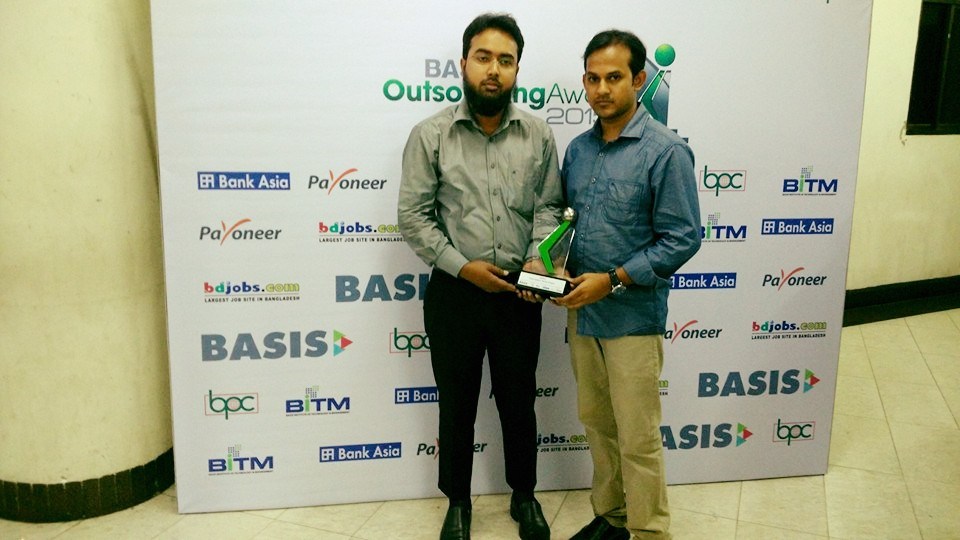

![Read more about the article [Tech50] How this startup is changing the definition of cleaning for public infrastructure in India](https://blog.digitalsevaa.com/wp-content/uploads/2021/12/SmartClean-06-1639736956288-300x150.png)
